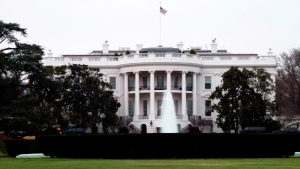 President Obama issued an executive order last month calling on the federal government to open access to public documents by making them “open and machine readable.” He called on government information to be “managed as an asset throughout its life cycle to promote interoperability and openness, and, wherever possible and legally permissible, to ensure that data are released to the public in ways that make the data easy to find, accessible, and usable.”
President Obama issued an executive order last month calling on the federal government to open access to public documents by making them “open and machine readable.” He called on government information to be “managed as an asset throughout its life cycle to promote interoperability and openness, and, wherever possible and legally permissible, to ensure that data are released to the public in ways that make the data easy to find, accessible, and usable.”
Well, I can think of a huge dataset waiting to be opened: case law from the US Federal District and Appellate Courts. Right now, some of the case law is published in slip format (the unofficial decision) in FDSys. It is machine readable, and contains metadata – both good things, consistent with this directive. However, it’s not official. If we are to take the White House mandate seriously, the official, published case law (issued by a private publisher), should be hosted in FDSys. This would make it “usable” under the Order.
In support of this move, President Obama references the release of government GPS and weather data, which encouraged entrepreneurs to create applications and tools of value to the American people.

 Two legislative crowdsourcing efforts came across my desk today:
Two legislative crowdsourcing efforts came across my desk today:  Access to opinions and codes is of particular interest to the bloggers at Justia. We complain mightily about private citation formats, paywalls to codes and caselaw online, privatization of court services and filings, and the government’s overall failure to provide us with official, free access to the public record. Last week’s
Access to opinions and codes is of particular interest to the bloggers at Justia. We complain mightily about private citation formats, paywalls to codes and caselaw online, privatization of court services and filings, and the government’s overall failure to provide us with official, free access to the public record. Last week’s  A heads up to all our Free Law Friends that next week is the 6th annual Open Access Week (October 22 – 28). Appropriately, it will be celebrated “everywhere”. Check out the
A heads up to all our Free Law Friends that next week is the 6th annual Open Access Week (October 22 – 28). Appropriately, it will be celebrated “everywhere”. Check out the 